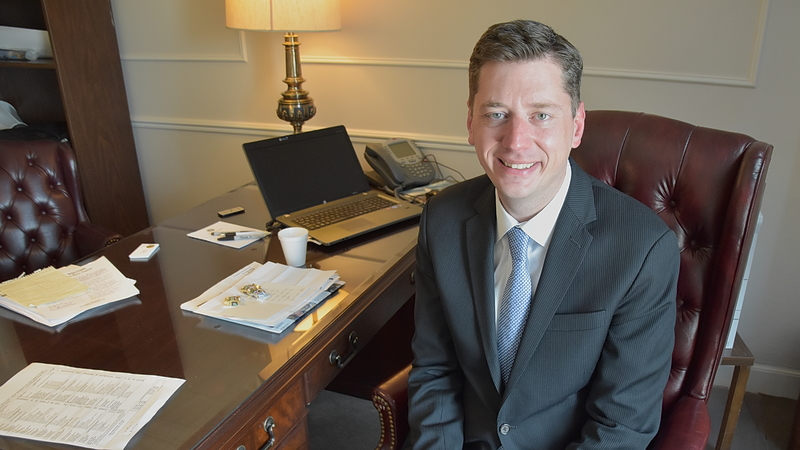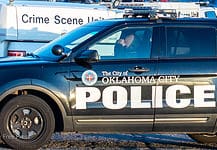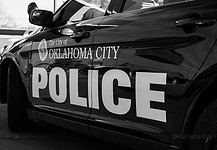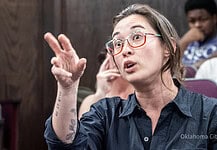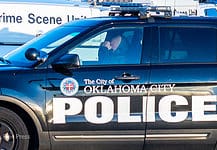Last Updated on April 11, 2018, 1:05 AM | Published: April 11, 2018
It wasn’t a quiet, long glide path for David Holt as he prepared to exit the Oklahoma Senate and take his seat as Oklahoma City’s 36th mayor.
Teachers, parents, students, and other supporters made up crowds of 30,000 to 50,000 in an unprecedented long walkout action in his closing week in the Legislature.
Exit interview
Monday, he gave Free Press ten minutes the last day he would be in his Capitol office amid visitors stopping by concerned about education funding and his lingering responsibility to get education measures passed by voting in the Senate right up to the end of Monday.
We asked about his resignation at 11:59 p.m. Monday, the day before he was to be sworn in as the next OKC mayor.
“I would have resigned last week, but we all started realizing that I was needed here in the Senate to vote for these education funding bills,” Holt said.
It was irony of the first order that in his closing days in the Senate he would be voting for tax increases.
He won his first election to the Senate in 2010, the year that anti-Obama voting in Red States swept in a new crop of anti-tax Tea-party aligned Republican candidates.
But Holt quickly found himself aligning less along the Republican/Democrat divide and more along the sharper divide between rural and urban legislators.
“I found myself defending things I never thought I would have to,” Holt told an OKC group recently. “There was a rural push to completely do away with zoning. We had to fight that one to protect a device we need very much in the cities.”
Convener
Holt’s first comments about becoming mayor was to talk about how the mayor is in a unique position to convene different groups of people in the city.
In fact, he believes it’s a key responsibility of the mayor to keep pulling people together to find solutions to the city’s problems. That means inclusion.
“You need to have a thoughtful and intentional approach about making sure all voices are heard,” said Holt.
“It doesn’t mean everybody gets what they want, but we have to start with everybody being heard, and then you can try to find compromise.”
We asked about his thoughts on the weak mayor structure of Oklahoma City where a city manager runs the day-to-day operations of the city.
“I think it’s great. I would have a state manager and a country manager if we could manage that,” he said.
Holt believes that it’s the job of the mayor and council to think deeply and far ahead about policy while the city manager keeps the city working.
He gave an example.
“The city manager has to worry about the dead dog on 10th Street. And it lets the mayor think about animal welfare in the year 2030.”
Education
Holt moves from being primarily concerned about state education funding and policy issues to trying to find a way to better support and strengthen the school districts in the Oklahoma City limits.
Most would think of Oklahoma City Public Schools as the only district for the city.
While OKCPS and Putnam City Public Schools are the core districts, they are joined by 22 other districts that overlap city limits.
But, OKCPS is crucial to the success of the city and are “very open to collaborative relationship. They know that people are not satisfied.”
Right now I feel like there is a lot of appetite for collaboration between the city and the school district and I mean of major things.
When asked if he was wanting to make all OKCPS into a charter district as some have openly wondered.
He said he couldn’t force something like that “even if I wanted to.”
“Right now, I feel like there is a lot of appetite for collaboration between the city and the school district and I mean of major things,” said Holt.
Founder, publisher, and editor of Oklahoma City Free Press. Brett continues to contribute reports and photography to this site as he runs the business.
